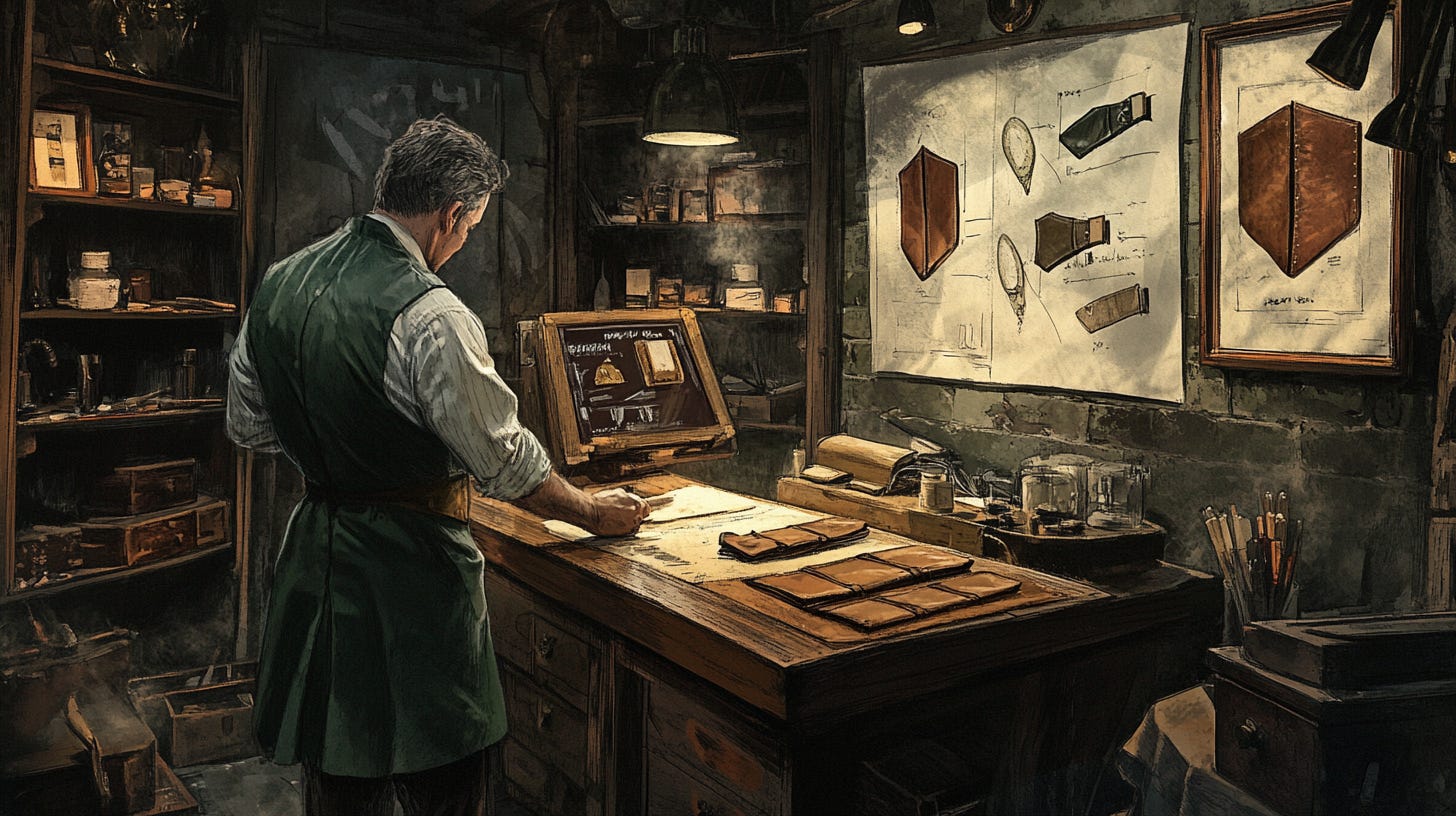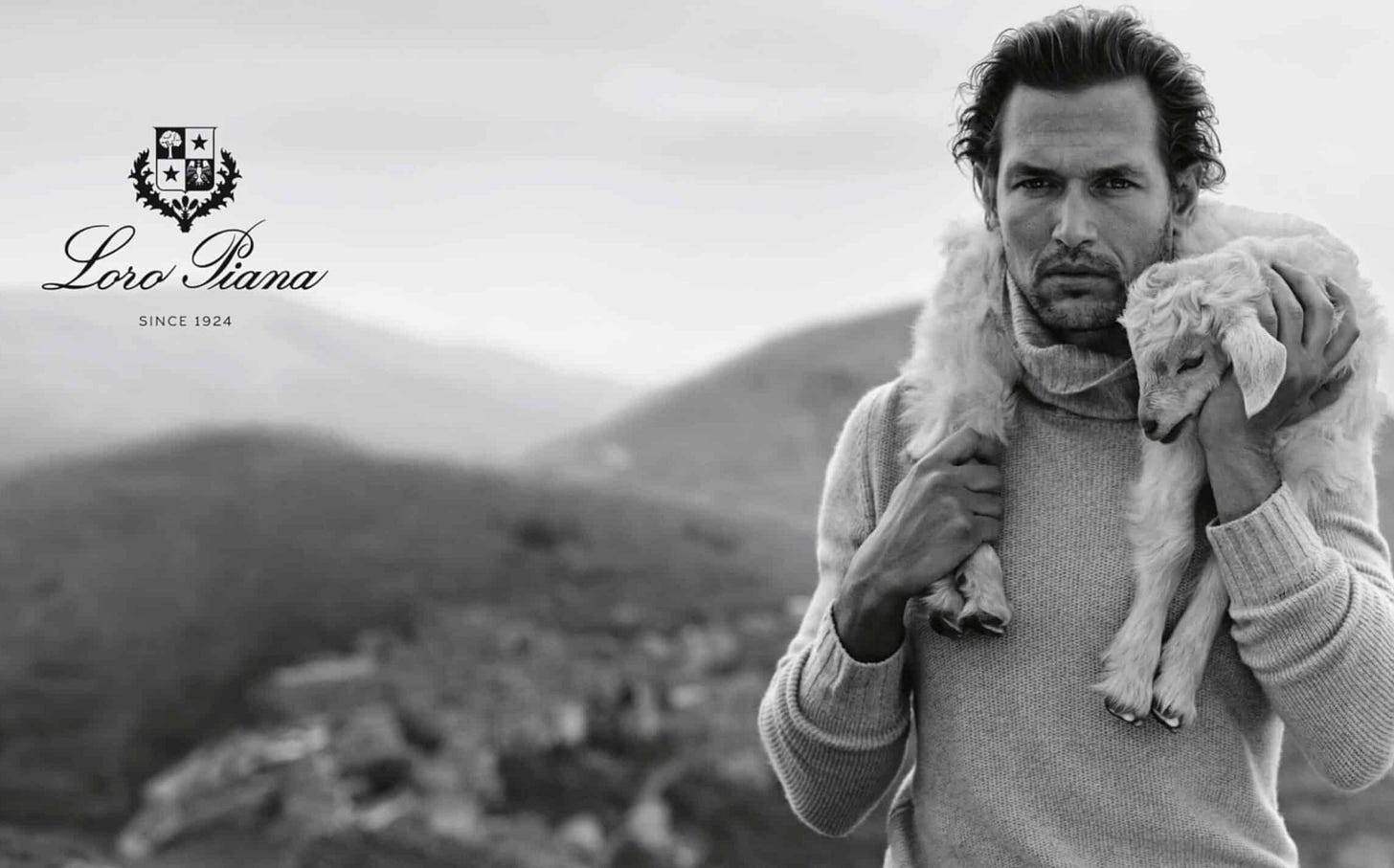The Quiet Luxury Paradox
From zero to a hundred... decibels
I never watched Succession--HBO's drama about wealth and power that became shorthand for quiet luxury. Yet this past year, I kept coming across the term everywhere, from social media to trend reports to luxury marketing decks. How does something meant to be subtle turn into one of the most hyped ideas in fashion and culture? It's a paradox about the very nature of status itself.
The wealthy have always played this game. At the end of the 19th century Thorstein Veblen wrote about how the Protestant elite would signal their status through increasingly subtle means: the right schools, the right habits, the right way of speaking. They called it modesty. Really, it was just a more sophisticated flex. Today's version moves faster. Loro Piana, once the best kept secret of old-money Italians, became a TikTok sensation. Their $500 baseball caps are now as recognizable as a Supreme box logo hoodie. The brand famous for not being famous became... famous.
Quiet luxury began as an unspoken language of refinement, an aesthetic that commanded respect through craft alone--no logos required, no hashtags needed. Think shoes from Brunello Cucinelli, cashmere from Zegna, or a bespoke suit crafted in a Savile Row atelier. Then marketers realized they could commodify understatement itself. "Quiet luxury" suddenly became mainstream--filling Instagram captions, trend forecasts, and think pieces globally.
The movement has become a megaphone for status signaling. These brands walk the line between subtlety and self-promotion, capitalizing on the allure of exclusivity while ensuring their products are still recognizable to the right people. It's not about being discreet; it's about being discreet in a way that others will notice.
And there's something undeniably cringeworthy about how "quiet luxury" is marketed. Consider Loro Piana, owned by luxury conglomerate LVMH. This corporate ownership should dilute its mystique, yet most consumers either don't know or don't care enough for it to have an impact. It's a masterful illusion: mass-market luxury companies selling the perception of exclusivity, with consumers happily suspending their disbelief.
Real "quiet luxury" still exists in less visible places. In vintage shops, you might find a decades-old Goyard trunk with patina that only time creates. In Florence, family-owned workshops still craft unmarked leather briefcases exactly as they did fifty years ago. Alden continues producing the same impeccable shoes they made for JFK, indifferent to trends. These pieces don't reject attention--they simply exist in a different world than social media's interpretation of luxury. Their appeal lies not in their elusiveness, but in their indifference to being found at all.
Refinement once came in whispers, but today it's caught in a noisy loop of recognition and replication. Its uniform--neutral tones, minimal logos, and tailored silhouettes, is as obvious now as the gaudy branding it once sought to avoid. This paradox reveals something deeper: in an age of increasing wealth inequality and curated online lives, true status isn't about what we display or hide, but about transcending the need to prove anything at all.



